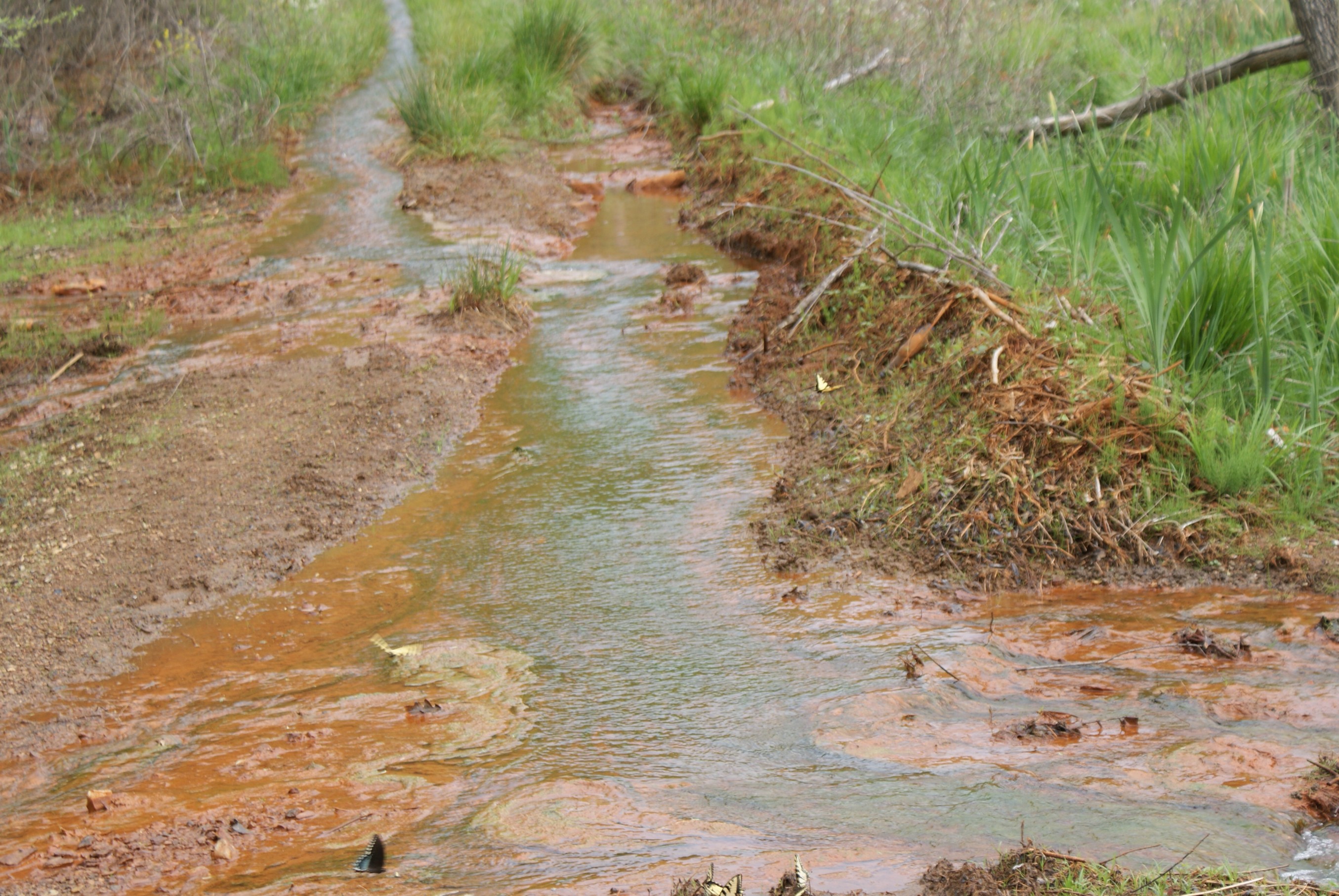April Jarocki has heard many stories about when the Clear Fork River was a healthy waterway for folks in eastern Tennessee to enjoy. “Fifty years ago it was really deep and full of fish,” said the Clairfield resident. “Now it’s barely a creek - it’s filled with sediment from years of coal mining.”
All through Appalachia, coal companies are leaving behind mines without reclaiming the land, causing a slew of environmental problems for nearby communities. Unreclaimed mine sites release methane gas, leach toxins into our water, and leave communities vulnerable to landslides and flooding. But a new bill in Congress is bringing some hope.
In early June U.S. Congressman Conor Lamb (D-PA) unveiled the Revitalize, Enhance, and Nurture in Expanded Ways Our Abandoned Mine Lands (RENEW) Act – new legislation to set aside millions of dollars to clean up abandoned coal mine sites in Appalachia. The bill would close a gap in funding since the bipartisan infrastructure law enacted last fall – that bill provides $11.3 billion over the next fifteen years to clean up coal mine sites that were abandoned prior to 1977. Those funds will go to the “Abandoned Mine Lands” program created in 1977 to clean up thousands of existing orphaned sites. The RENEW Act would address coal mines abandoned after 1977.
“Rep. Lamb’s legislation would help address the crisis in the mine reclamation system established by the 1977 Surface Mining Control and Reclamation Act (SMCRA),” said Bonnie Swinford, a senior representative for the Sierra Club Beyond Coal Campaign. “As the coal industry has declined, it has become clear that the funding requirements for mine cleanup established by SMCRA are far from adequate and we must take action.”
As the coal industry continues its economic decline, companies are declaring bankruptcy and shutting down mines before any cleanup takes place, leaving behind an expensive burden for states and environmental threats for the mining towns. The RENEW Act is a win-win for Appalachia because it will put people to work reclaiming coal mines while also cleaning up the pollution – making nearby communities safer places to live and thrive.
“This is a vital piece of legislation to help communities historically dependent on the coal industry transition to new economic opportunities,” said Bill Price, Senior Organizing Manager for Sierra Club’s Beyond Coal campaign in West Virginia. “It’s essential that we continue to fight for communities that have been dependent on the coal industry so that they can build diverse, thriving economies with good paying jobs and long-term stability. They deserve nothing less.”
April Jarocki is also pleased with another new bill that will help coal communities - the Safeguarding Treatment for the Restoration of Ecosystems from Abandoned Mines, or STREAM Act. In 2021, Congress enacted the Bipartisan Infrastructure Law, which included an unprecedented $11.3 billion for pre-SMCRA abandoned coal mine reclamation. But unfortunately, the new law does not allow states to set money aside for long-term acid mine drainage treatment facilities and the STREAM Act would address that oversight.
Jarocki works with the Clear Fork Water Monitoring Project, which tests for acid mine drainage in the area. She’s worried about its environmental and economic impact. “There’s been a lot of ecotourism popping up around here,” she said. “Acid mine drainage and unreclaimed mines could really impact that.”
The RENEW and STREAM Acts are the subject of a congressional hearing this week in the House Natural Resources Committee, a critical step to the House of Representatives passing these bills before the end of the year.
You can help with the push to reclaim abandoned mines. Sign our petition telling President Biden to appoint an Office of Surface Mining Reclamation and Enforcement director now!
